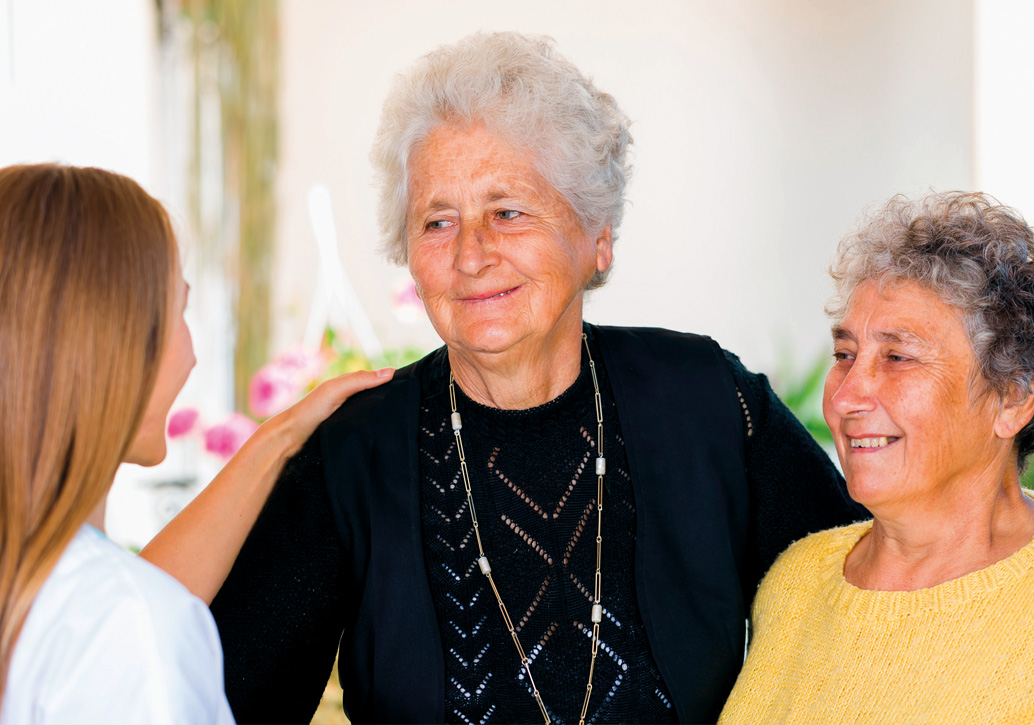More than 8 million Canadians are informal (unpaid) caregivers for a family member or friend with a long-term health condition, disability or aging needs. That’s one in four people – a staggering number that’s anticipated to grow as our population ages.
Chances are, at some point, you’ll be a caregiver for an older family member or friend. Helping an elderly loved one can be highly rewarding; many people view it as an opportunity to give back to someone who provided for them in the past. Many seniors wouldn’t be able to live independently without help from informal caregivers.
Caregivers help with a wide range of tasks, including housekeeping (laundry, cleaning, cooking, grocery shopping), personal care (assistance with eating, grooming, bathing, dressing, toileting), health care (medication reminders), transportation (escorts to appointments and outings) and financial management (assistance with bill payments).
Informal caregivers play a vital role in our society – in fact, family members and friends provide 70 to 80 percent of the care that older adults receive in the community, contributing the equivalent of $25 billion in unpaid labour to Canada’s health system.
As rewarding as caregiving may be, it can also be physically and emotionally taxing, especially if the care recipient has significant needs (such as dementia or a physical disability). Caregivers often have other responsibilities, including careers and families. The time, energy and resources that caregiving requires can cause considerable stress and financial strain. And sometimes, when an aging parent needs care, family dynamics are amplified, leading to conflicts between caregivers (such as siblings).
It’s important for caregivers to recognize the signs of stress and burnout, and to take time for rest and self-care.
The signs of caregiver burnout
Over time, providing care for an older family member or friend can take a physical and emotional toll on caregivers. They may even feel overwhelmed, especially if they’re juggling caregiving duties with a paid job and/or other family responsibilities. (The term “sandwich generation” was coined decades ago to describe those caring for both children and aging parents.)
Caregivers need to know the signs of stress and burnout. Take this quick quiz – check off each sentence that applies to you:
♦ I’m tired or exhausted a lot of the time.
♦ I’m having trouble sleeping (too little or too much, bad dreams, waking up at night).
♦ I’m not eating a healthy diet.
♦ I’m not exercising as much as I should.
♦ I feel anxious or depressed.
♦ I’m often sad, irritable, angry or easily upset.
♦ I worry a lot or I feel overwhelmed.
♦ It seems like I’m being pulled in several directions at once.
♦ I’ve having trouble concentrating, or I’m forgetful.
♦ I’ve lost interest in socializing and my usual hobbies.
♦ I hardly ever take time out for myself.
♦ I get sick more often than I used to, and illnesses seem to last longer.
♦ I’ve developed health problems (high blood pressure, bodily pain, headaches).
♦ I’m using alcohol or drugs (including prescription medications) excessively.
♦ I’m not keeping up with my own medical appointments, screening tests or vaccinations.
The more checkmarks, the greater the need there is for you to make a change.
What is respite care?
For many people, respite care provides the solution they need.
Respite care offers informal caregivers a respite, or break, by taking their place for a few hours or days, or longer. Respite care is provided by other informal caregivers or by professional care workers (hired privately or through an agency). It takes place in recipients’ homes, retirement residences or long-term-care facilities. Sometimes, seniors move temporarily from home to a facility.
By helping family caregivers prevent burnout, respite care may extend how long they can support their loved ones. Respite care can also improve the quality of the time they spend with the care recipient.
When is it time to try respite care?
When caregivers notice signs of stress and burnout, they should take steps to arrange respite care. Otherwise, they may become increasingly frustrated, angry or impatient, raising the risk of crisis situations or elder abuse.
If you’re a caregiver, don’t ignore the warning signs. Reach out to family and friends, who may not realize you’re struggling. Explore community and government resources that may be available. Hiring a caregiver for just a few hours a week can help lighten the load and give you a much-needed break.
Bayshore Healthcare offers individualized respite care and home health services. For more information, visit bayshore.ca or call 1-877-289-3997.
Remember, staying well also benefits your loved one, so take care to practice self-care and reach out for help when you need it.














